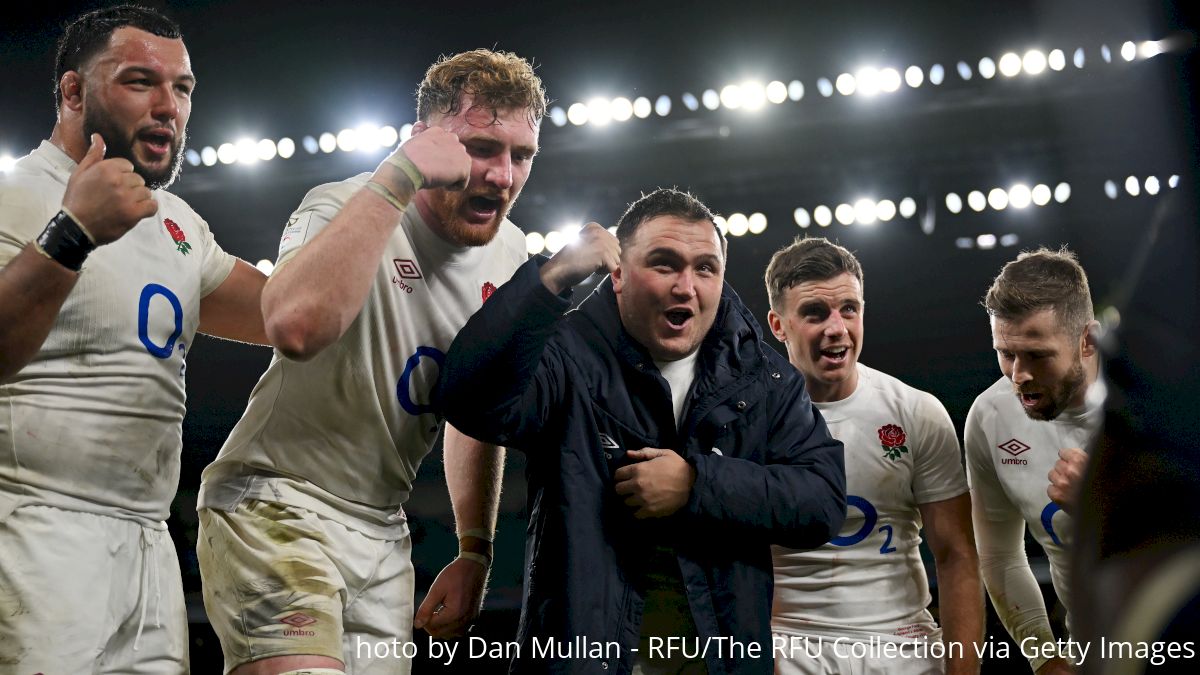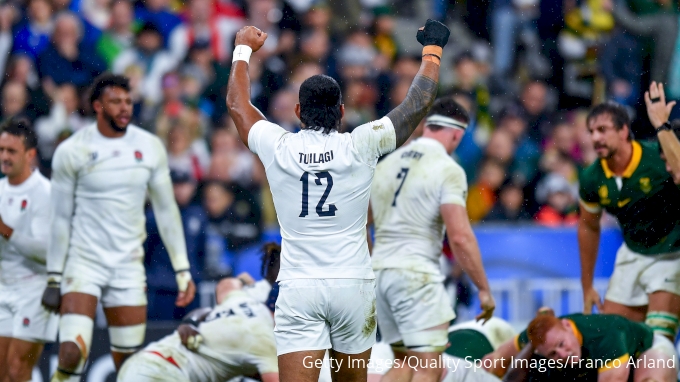State Of The Nation: Where England Sits After Round 2 Of The Six Nations
State Of The Nation: Where England Sits After Round 2 Of The Six Nations
Steve Borthwick's England team is sitting with two wins from two outings in the 2024 Guinness Six Nation. Here's how the team looks at the break week.

England is one of only two teams left in the Six Nations that remain unbeaten, and yet, the public perception of the team couldn’t be more different from counterpart, Ireland.
While the men in green are rightly touted as the favorites to secure a second successive Grand Slam title, England is viewed with a lot more caution.
- Subscribe To FloRugby To Watch More International And Professional Rugby
- Six Nations Rugby Trophy Guide
- How To Watch The Six Nations 2024
After all, they’ve beaten Italy - a nation they’ve never lost to in a test match - and Wales, which is in the midst of a rebuild and has the youngest and most inexperienced squad in the competition.
Despite the shortcomings of both these oppositions, England struggled to dominate either encounter, winning both by an aggregate score of five points.
So what have we learned from England so far?
It’s clear head coach Steve Borthwick is trying to reimagine the team in the wake of the World Cup, and the high-profile departures of talismans such as Owen Farrell, Ben Youngs and Courtney Lawes, have made that job all the more challenging.
The hole those characters have left is substantial, and the job at hand is to plug those gaps with players who have the staying power through to the next World Cup cycle, which is not easy.
One of the main areas that needs consolidation is the front row.
With veterans Joe Marler and Dan Cole still clocking minutes, there remains a lack of talent coming through the ranks to replace them. The Bath duo Will Stuart and Ben Obano have looked stable when given the chance, but neither have shone to the point where they’re a shoo-in for the future of the English scrum.
Of the two, Stuart is the more impressive ball-carrier, though his impact in the contact zone is still limited.
The absence of big carriers has been a prevalent issue for the English pack, with Ben Earl standing alone as the only player getting consistent go-forward in the midfield. Such a lack of physical edge is an issue, but Borthwick will be aided by the return of George Martin and Manu Tuilagi, who have recovered from injuries to return to the squad ahead of Scotland next weekend.

The continued absence of Ollie Lawrence is a stinging blow, but with Tuilagi back in the fray, England has a big ball-carrying option at 12 who genuinely can puncture opposing defenses.
While Fraser Dingwall has struggled to make a dent in both defense and attack, Tuilagi would offer an added dimension in both.
And, crucially, he could provide the answer to the growing pains in England’s high-line in defense and its lack of creativity in attack.
Since joining the England coaching set-up in the autumn, new defensive coach Felix Jones has implemented his trademark high-press approach to defensive work, forcing his players to fly up in almost every defensive set.
It’s a high-risk strategy that sometimes leads to mistakes, but it’s also quickly brought about results, specifically in Round 2, when Wales was pushed backward after over 20 phases in the final minutes of the match.
Adding Tuilagi into the mix will give the backline rush even more bite, as seeing the advancing Sale Sharks center likely is to fluster even the most poised center.
Then, there’s England’s attack or lack thereof.
For a time now, under Borthwick, the men in white have looked rather one-dimensional with the ball in hand, relying heavily on kicking during the World Cup.
Ball retention has exponentially increased in this Six Nations, but attacking structures still look blurry and unaccomplished, with moves falling flat due to dropped balls and mistimed runs.
Add Tuilagi into the mix, and George Ford instantly has a viable crash ball option who can suck in defenders. Unlike Dingwall, Tuilagi offers a serious decoy line, which in turn makes it easier to pull the ball back and spread possession out wide.
That will be crucial when England faces the more expansive sides left in the tournament - France, Ireland and Scotland. Relying upon a defensive rush alone will not be enough - England must get its set plays working if they're to challenge for the Six Nations title.
However, while England still is a work in progress, there are plenty of positives: they’re second in the Six Nations, remain unbeaten, have big ball carriers returning and have a new defensive structure that's working.
If Borthwick can fix the attacking woes and get the backs humming, England could go from winning ugly to winning well.